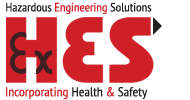Automation.com | Process Safety >>
This course will cover the ANSI/ISA-67.01.01 standard relating to the installation of transducers for nuclear safety-related applications. The course emphasis will be a review of established requirements and recommendations for the installation of transducers and auxiliary equipment for nuclear applications outside of the main reactor vessel.
